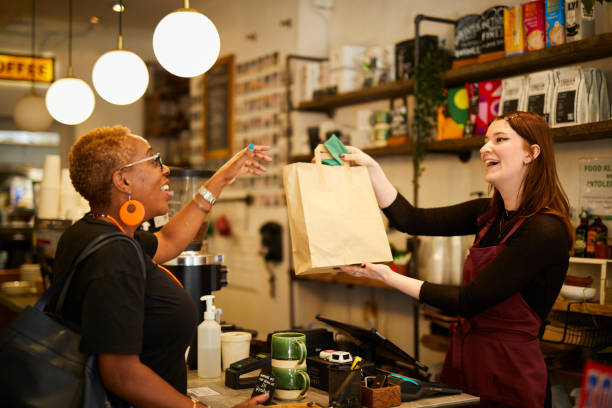Starting and running a café in the UK can be incredibly rewarding—but it’s also highly competitive. From securing the perfect location to mastering food hygiene regulations, there’s a lot to consider.
This ultimate guide covers everything you need to know to launch, manage, and grow a thriving café business in the UK.
1. Planning Your Café Business
✅ Define Your Café Concept
- Type of café: Specialty coffee shop, brunch spot, vegan café, bakery café
- Target audience: Office workers, students, tourists, families
- USP (Unique Selling Point): What makes you stand out? (e.g., organic ingredients, artisanal coffee, dog-friendly)

✅ Write a Business Plan
A solid business plan should include:
✔ Market research (competitors, local demand)
✔ Startup costs (rent, equipment, licenses)
✔ Pricing strategy (food & drink margins)
✔ Financial projections (break-even point, profit forecasts)
✅ Legal Requirements for UK Cafés
- Business registration (Sole Trader, Ltd, or Partnership)
- Food Hygiene Rating (mandatory, scored 0-5)
- Licenses:
- Premises license (if selling alcohol)
- Music license (if playing background music)
- Outdoor seating license (if applicable)
2. Finding the Perfect Location
📍 Best UK Cities for Cafés (2024 Trends)
| City | Why It’s Good for Cafés |
|---|---|
| London | High foot traffic, but high rent |
| Manchester | Growing coffee culture, lower costs |
| Bristol | Strong demand for indie cafés |
| Edinburgh | Tourist hotspot, premium pricing |
| Brighton | Vegan & specialty coffee boom |
💡 Location Tips
✔ Foot traffic (near offices, universities, transport hubs)
✔ Competition check (too many cafés = saturated market)
✔ Affordable rent (aim for ≤10% of projected revenue)
3. Setting Up Your Café
🛠 Essential Equipment
- Coffee machine (£2,000–£10,000)
- Commercial fridge/freezer (£500–£2,000)
- POS system (Square, Zettle, or Lightspeed)
- Furniture & décor (cosy vs. modern aesthetic)
💰 Typical Startup Costs
| Expense | Estimated Cost |
|---|---|
| Lease deposit | £5,000–£20,000 |
| Renovations | £10,000–£50,000 |
| Equipment | £15,000–£40,000 |
| Initial stock | £2,000–£5,000 |
| Total | £30,000–£100,000+ |
4. Hiring & Staffing
👥 Key Roles in a Café
- Baristas (specialty coffee skills)
- Chefs/Cooks (if serving food)
- Front-of-house staff (customer service)
- Cleaners (hygiene compliance)

📌 UK Employment Laws
- Minimum wage (April 2024 rates):
- £11.44/hr (23+)
- £8.60/hr (18-20)
- Holiday entitlement: 28 days (incl. bank holidays)
- Pension auto-enrolment (if earning >£10,000/year)
5. Managing Finances
💷 Pricing Your Menu
- Coffee markup: 300–400% (beans cost ~20p/cup, sell for £3)
- Food markup: 60–70% (ingredients vs. selling price)
📊 Keeping Costs Low
✔ Bulk buying (wholesale suppliers like Bidfood, Brakes)
✔ Energy-efficient appliances (reduce bills)
✔ Waste reduction (sell day-old pastries at discount)
📉 Common Financial Mistakes
- Underestimating food waste costs
- Ignoring seasonal demand changes
- Not tracking daily sales vs. expenses
6. Marketing Your Café
📱 Digital Marketing Tips
✔ Instagram & TikTok (food photos, behind-the-scenes)
✔ Google My Business (get local customers)
✔ Loyalty schemes (app-based or stamp cards)
🚀 Promotions That Work
- “Happy Hour” discounts (e.g., 2-for-1 pastries 3-5pm)
- Local collaborations (supply coffee to nearby offices)
- Events (live music, latte art competitions)
7. Overcoming Challenges
⚠️ Common Café Problems (& Solutions)
| Issue | How to Fix It |
|---|---|
| Low footfall | Offer free Wi-Fi, host events |
| High staff turnover | Better training, incentives |
| Rising ingredient costs | Adjust menu, find cheaper suppliers |
8. Future Trends (2024 & Beyond)
- Sustainability focus (reusable cups, compostable packaging)
- AI ordering (self-service kiosks, chatbot reservations)
- Ghost kitchens (delivery-only café concepts)
Final Thoughts
Running a café is hard work but incredibly rewarding. By focusing on location, customer experience, and smart finances, you can build a thriving business.
Need help with café business planning? ScaleX Technology provides expert advice on startup funding, location analysis, and digital marketing for UK cafés.
